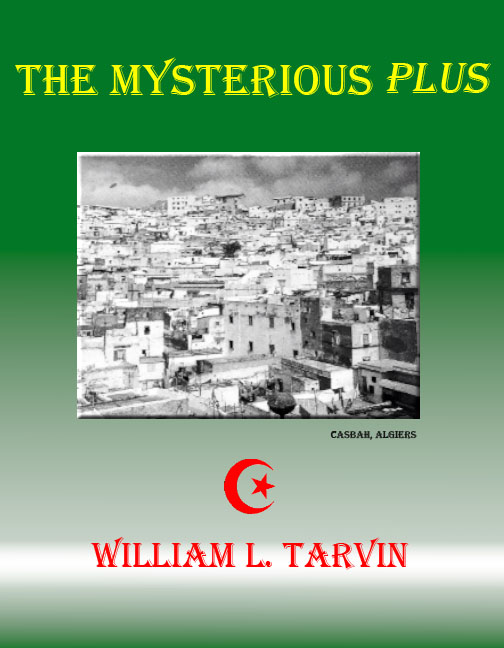The Mysterious Plus
The Mysterious Plus opens with a situation recently in the news: the murder of an American embassy official in a North African country. The aim of my novel, however, is broader than an individual act of violence. Its murder becomes a symbol of the fanatic-inflamed divisions between Muslim Middle East and Judeo-Christian West, which are fraying the ties that bond humanity.
The hero of The Mysterious Plus straddles both worlds. To save his sister, Omar Naaman, nineteen, betrayed comrades and country during Algeria’s fight for independence from colonial rule. At the war’s end, the defeated French, grateful for his double-dealing service, whisked him to France, bestowing a new identity, Remy Montpellier.
AT THE BOTTOM OF THIS PAGE IS A LIST OF THE 21 CHAPTERS OF THE MYSTERIOUS PLUS. YOU MAY ACCESS A CHAPTER BY CLICKING ON THE CHAPTER'S NUMBER.
Years later, Remy is coerced by the French DGSE (their intelligence service) to return incognito to Algeria, where as Omar he is still branded as a traitor, in fact, as the last of the “Seven Devils,” the first six “great collaborators” having been tracked down and killed by Algerian agents.
Sent to investigate the gay-bashing murder of an American embassy attaché, who (DGSE suspected) was trafficking classified documents, Remy gradually moves from pursuer to pursued. Will he fulfill the true purpose of his returning to Algiers, or will his treasonous past overtake him? How does the “Mysterious Plus” control the answers to these two questions and hence the resolution to the novel?
In my previous book, The Saint of Sodomy (GLB, 1999), relying on my experiences from living the the Middle East for two decades, I satirized Muslim sexual hypocrisies. Though the same barbed wit infuses The Mysterious Plus, it is counterpoised by a darker strain, that materialistic/spiritual differences between West and Middle East threaten to sever the cords bonding humanity.
Since my novel incorporates ideas from around one thousand philosophical, religious, literary, social, psychological, historical, and political works, I have provided footnotes.
I advise the reader to avoid these since annotations break the flow of any work. However, if you come across an ideological point (such as one by the twentieth-century philosopher Karl Popper) or a lexical term (such as “philomicron”) and happen to be a lover of such small things, I have provided some nonaddictive commentary and definitions.
CHAPTERS
Chap. 1 Chap. 8 Chap. 15
Chap. 2 Chap. 9 Chap. 16
Chap. 3 Chap. 10 Chap. 17
Chap. 4 Chap. 11 Chap. 18
Chap. 5 Chap. 12 Chap. 19
Chap. 6 Chap. 13 Chap. 20
Chap. 7 Chap. 14 Chap. 21

Leave a comment
You must be logged in to post a comment.